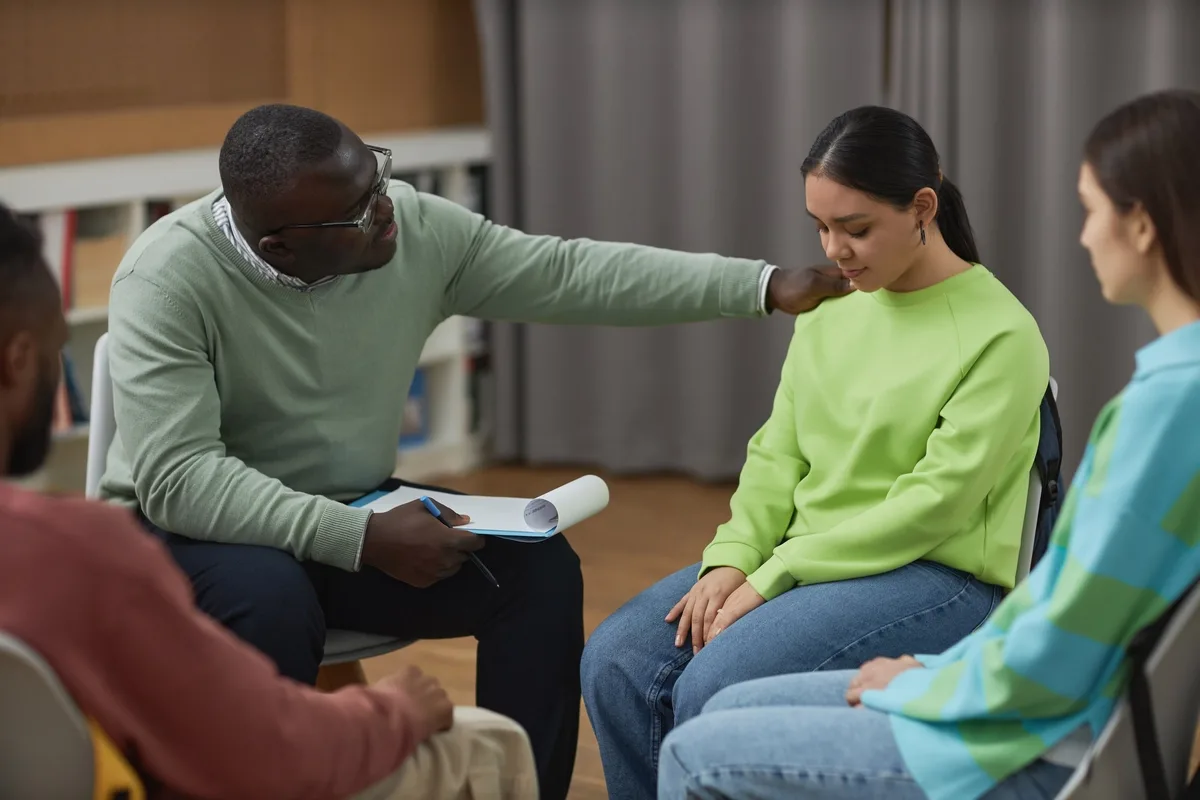24/7 Helpline:
(866) 899-221924/7 Helpline:
(866) 899-2219
Learn more about Aftercare Support centers in Valencia
Aftercare Support in Other Cities

Other Insurance Options

CareFirst

Self-pay options

Meritain

Health Partners

Choice Care Network

Providence

MHNNet Behavioral Health

GEHA

Ceridian

Covered California

Kaiser Permanente

MVP Healthcare

Coventry Health Care

Carleon

UnitedHealth Group

PHCS Network

Ambetter

EmblemHealth

Highmark

Access to Recovery (ATR) Voucher










